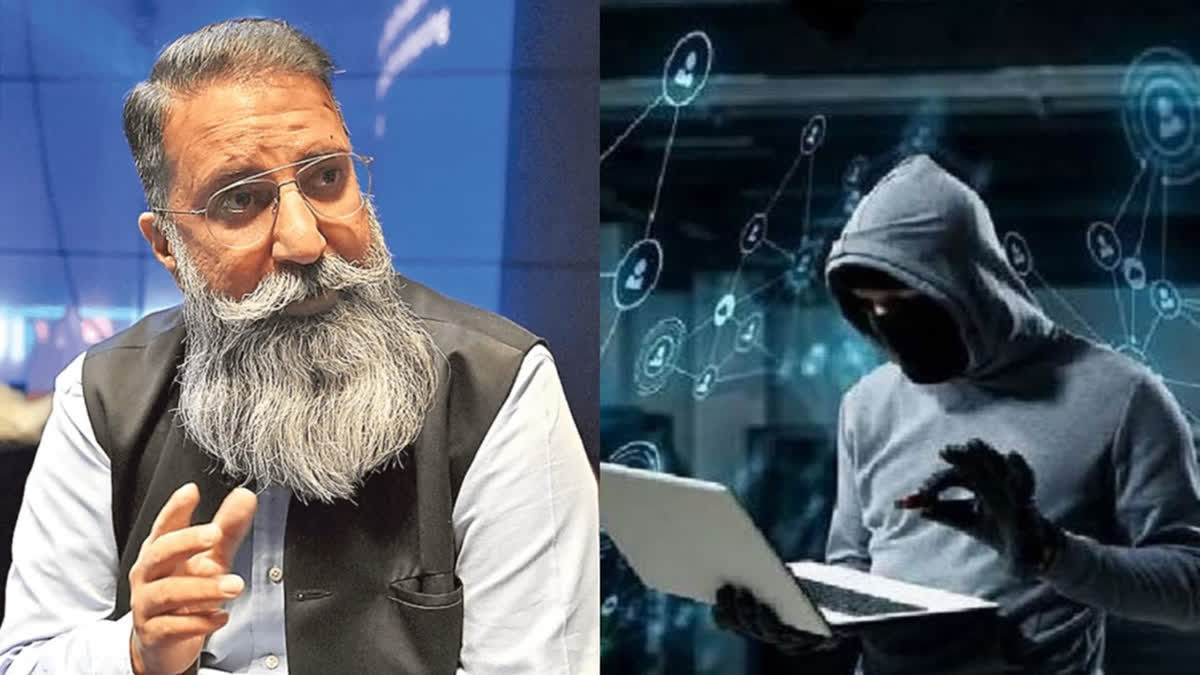Hyderabad: Artificial Intelligence (AI) is as much bane as boon. In the growing digital era where advent of AI technology was seen as a revolution, tackling its misuse came along as a bigger concern. Supreme Court lawyer and ‘Just Rights for Children’ founder Bhuvan Ribhu corroborated this when he cited that the misuse of AI to create child pornography has become a global challenge, giving rise to an illicit industry worth thousands of crores.
Bhuvan Ribhu, son of Nobel Peace Prize laureate Kailash Satyarthi, has been vigorously fighting against sexual crimes against children and women while playing an active key role in shaping policies to curb these offenses.
Addressing 'Shield-2025', a two-day conference organised by the Telangana Cyber Security Bureau at HICC in Hyderabad, Ribhu highlighted the urgent measures needed to combat digital and physical exploitation of children. "Social media platforms must be held accountable for the increasing number of digital crimes," he added.
From Acid Attacks To Digital Crimes Now
Digital platforms are now being misused to blackmail, harass, and exploit women and children, similar to how acid was once used to intimidate victims. Social media platforms have strict accountability measures in the US but act irresponsibly in India, Ribhu commented.
The Supreme Court has ruled that social media must take responsibility for digital crimes, cooperate in investigations, and report offenses, but these companies continue to ignore court directives, Ribhu noted.
AI-Generated Child Pornography: A New Global Menace
The lawyer explained how organised criminal groups are creating and distributing AI-generated child pornography, while simultaneously ensuring that enforcement becomes difficult. "Those who watch and share such content must also be held accountable under the law. Stronger international laws and cross-border cooperation are needed to exchange intelligence and crack down on offenders," he said.
Challenges In Digital Crime Investigation
Highlighting the challenges the investigative agencies face while dealing with digital crimes, Ribhu said, "Lack of coordination between law enforcement agencies allows criminals to evade punishment. Many victims fear reporting it to police or cyber officials, which in turn gives more courage to criminals to go on a spree."
On the low conviction rates, he said it is due to delay in investigation and missing charge sheets.
Stating that social media accountability is crucial, Bhuvan Ribhu’s organisation has filed a petition with the Supreme Court to bring stricter regulations.
Telangana Leading the Fight Against Digital Crimes
As per the data provided by Ribhu’s organisation, Telangana is leading the fight against digital crimes and has been the best in business in tackling cybercrimes. "Last year, Telangana police arrested 2,000 persons involved in human trafficking. I urge other states to adopt Telangana’s model for better results," he said.
What Can Be Done?
Outlining the possible course of action, the lawyer said, "Stronger laws must be enacted before crimes escalate, rather than arriving 4-5 years late. Governments must invest in cybersecurity resources and build accountable systems. Parents and teachers must educate children early on digital fraud and limit the gadget usage only to essential needs."
Read More
1. Crime GPT: New AI Model to Help UP Police in Strengthening Security
2. From Talking To Deceased Loved Ones To Digital Twins: Google X Founder Discusses Future Of AI



